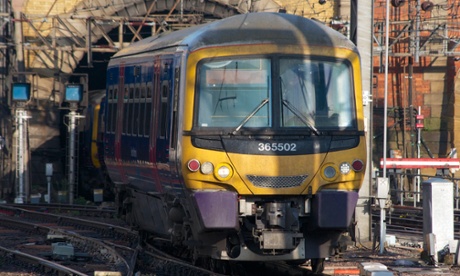
Four leading UK entrepreneurs have called for better travel links to help expand the technology cluster beyond London to the “golden triangle” between Cambridge, Oxford and the capital.
A report commissioned by the Cambridge-based entrepreneurs, which includes the UK semiconductor industry founder Hermann Hauser, angel investor Sherry Coutu, biotechnology head Andy Richards and telecoms businessman David Cleevely, claims that poor infrastructure connecting the south-east region is holding Boris Johnson’s golden triangle vision back.
“Drawing lines between places on a map does not make them connected,” said Cleevely. “We need to connect people and ideas and back this with infrastructure to match.”
‘Exist in relative isolation’
Having twice as many technology startups per head than any other city in the EU makes Cambridge Europe’s leading technology cluster, according to the report. However, current connectivity inhibits Britain from competing with Silicon Valley or Shanghai.
“Unlike their counterparts in Silicon Valley, Cambridge, Oxford, London, and their neighbours exist in relative isolation,” wrote the authors, who said that it was easier to work with people in Manchester, Amsterdam or Paris than between cities in the south east.
“As well as connecting people and ideas within a single city, we need to be thinking about connecting nearby cities with a modern and effective infrastructure,” they said. “We do not have the concentration of humming, continuous, multidirectional, and mutually reinforcing corridors of innovation, spilling-over with people, ideas, investors and promise. That is what it would look like if the fabled ‘golden triangle’ were a reality,”
The report points to King’s Cross as a suitable rail “mega-hub” connecting London, Oxford, Cambridge and the surrounding areas including Stevenage, Stansted, Milton Keynes, the Thames Valley and Martlesham.
‘Integrated scale of Silicon Valley’
More people, 744,000, according to recent research by former New York mayor Michael Bloomberg, are employed in the technology industry in the golden triangle than work in Silicon Valley. Foreign investors see London, Oxford and Cambridge as broadly the same area. “Greater integration across the south east to achieve the integrated scale of Silicon Valley would spur the economy and accelerate inward investment into the UK,” the authors state.
But to do that the authors insist that transport links must be enhanced to ensure travel time between the south east, Oxford and Cambridge is reduced to less than 40 minutes within 10 years. Current travel times can be between two and three hours, which prevents the chance encounters that foster innovation within clusters.
In the short term, the authors suggest that more hubs, like Google’s Campus in London, which provides space and expertise for startups to get a foothold, are needed to provide a safe place for companies to take risks on projects and innovation. They also provide space for developing ideas through informal meetings, the kind of innovation that isn’t found in the boardroom, according to the authors.
“Hubs don’t need to be in fixed places; let’s have special carriages on trains designated as informal meeting places, and start with Oxford-London and Cambridge-London,” the authors said.
Technology in the form of giant interactive screens could also aid informal mingling.
“Walking past such a screen, you might see someone you know (and had been meaning to have a chat with). You attract their attention – wave and say hello,” the authors speculate. “The system should then allow you to talk as if you had met in the street or cafe, and to transfer that conversation seamlessly to your own smartphone or tablet.”
• British government urged to support ‘scale-ups’ not just startups

